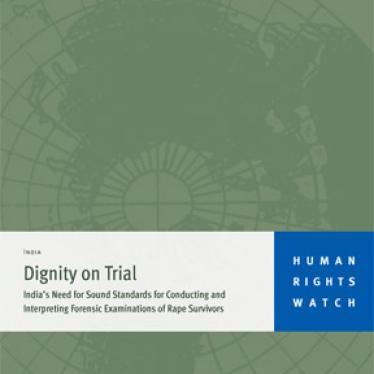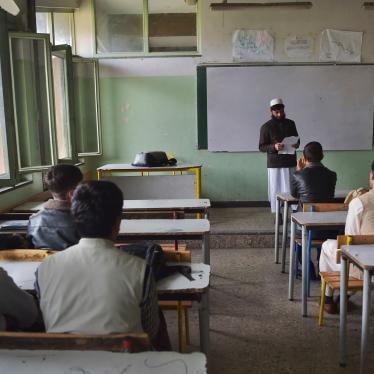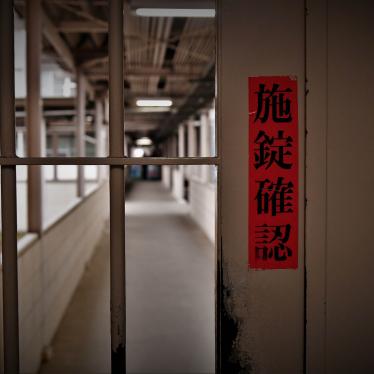In a few weeks, the European Union and India will hold a human rights dialogue. The death of a 23-year-old student who was gang-raped and beaten last month in New Delhi should catapult sexual violence to the top of the agenda.
The New Delhi gang-rape has sparked a range of responses across India. A Rajasthan state legislator in India called for a ban on allowing girls to wear skirts as uniforms. A minister in Madhya Pradesh state burned jeans and t-shirts. The Puducherry School Education Minister said that girls’ uniforms should be redesigned to protect them with an overcoat. The Islamist group Jamaat-e-Islami Hind recommended a “sober and dignified” dress code for girls while the Hindu extremist Rashtriya Swayamsevak Sangh chief Mohan Bhagwat blamed rape on “Western” values. Suggesting that women and girls “invite” sexual assault through their clothing or conduct—and thus blaming the victim— is not uncommon in India. There is talk of legal reform and fast trials, but stigma and blaming of survivors of sexual assault will unfortunately live on without concerted efforts to end it.
While researching the difficulties rape survivors face while seeking justice in India, I heard about the myriad ways in which the stigma of sexual violence magnified the hardship for survivors and their families. A lawyer told me of a 15-year-old left pregnant by rape whose father was pressuring her to marry her rapist. The family of a 6-year-old rape survivor said they faced such stigma in their community that their older daughter had dropped out of school. Another lawyer assisting a 14-year-old survivor of gang rape reported that the girl’s father abandoned the family, unable to handle the “shame.” Sadly, these are all too frequent responses.
Some government officials let damaging stereotypes surrounding sexual assault interfere with their duties towards rape survivors. Many police officials tasked with registering criminal complaints and investigating rape recommend that survivors and their families drop their complaint to avoid potential “shame” in their communities. Many other police officers blame rape survivors. An April 2012 investigation by Tehelka, an Indian national magazine, revealed how many police officers in New Delhi are unsympathetic and hostile, citing “fashionable or revealing clothes to having boyfriends to visiting pubs to consuming alcohol to working alongside men as the main reasons for instances of rape.”
Changing attitudes is not easy, and the government alone cannot combat damaging stereotypes around sexual assault. But the government has a critical role to play—law reform coupled with effective implementation of laws will help make a dent in misogynist attitudes.
For many in India, rape renders the survivor as an object of “shame.” Indian criminal law reinforces this idea of “modesty.” It narrowly defines rape as requiring penile-penetration, and other sexual offences fall under crimes concerning the “outrage” or “insult” to the “modesty” of women.
The Indian parliament should criminalize the full range of sexual assault with appropriate punishments that respect basic human rights, as long advocated by women’s rights groups. Sexual assault should be recognized as a violation of the right of women and girls to bodily integrity and dignity, rather than “modesty.”
The current momentum for reform should not be limited to amending laws—it should be used to reduce the large gap that exists between law and official practice.
Police officials who refuse to register and investigate criminal complaints should be held accountable.
The government should establish protocols for sensitive screening for sexual violence by health providers, and adopt standards for dignified medical treatment of rape survivors. The practice of providing unscientific and degrading medical opinions about whether a rape survivor is “habituated to sex” should be completely eliminated. Existing health programs should integrate information about sexual violence and its health consequences. And the country should make available resources for survivors through which they can access coordinated medical, legal, psychological, and other services.
Frontline officials who deal with rape victims need training on how to treat survivors with dignity. But other officials and policymakers also need training. The Indian government’s National Mission for Empowerment of Women has created gender-focal points in each ministry. They should organize periodic and mandatory gender-sensitization programs for officials at the central and state government levels. Another suggestion is that the Ministry of Women and Child Affairs spearhead a Code of Conduct for all ministers, state legislators, and public officials, to guide their policy, speeches, and comments regarding women and girls, especially sexual assault survivors.
A few months ago, the United Nations secretary-general said of sexual violence, “It is the perpetrators who should feel disgraced, not their victims.”
Unfortunately in India, the reverse is often the case. Sexual violence survivors need to be able to move on with their lives with respect and support from their families, communities, and government officials. There should be no “shame” in being a survivor of sexual assault.






